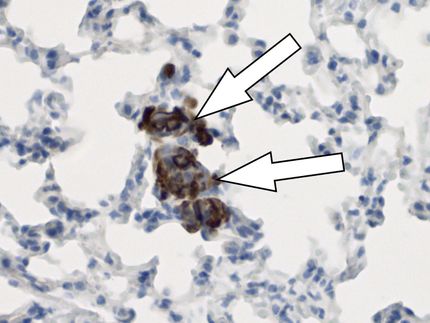Immune system may guide chemotherapy for breast cancer
A study published in Cancer Discovery, the newest journal of the American Association for Cancer Research, showed how evaluating the immune response in the tumor microenvironment may help researchers better target therapy in breast cancer.
Researchers at the University of California, San Francisco, demonstrated that the level of macrophages and CD8+ T-cells, two key components of the human immune system, can help predict recurrence and overall survival. New biologic-targeted therapies impairing macrophage recruitment into tumors show promising results in preclinical studies.
"Phase I clinical trials are blunt instruments because their goal is often limited to determining a safe dose for a new drug," said Lisa Coussens, Ph.D., professor in the department of pathology at the University of California, San Francisco. "Using preclinical transgenic mouse models of cancer development, scientists cannot only help determine a safe dose for a new drug, but also identify biomarkers indicative of the biological response of the new drug. Identification of relevant biomarkers can then be translated to clinical studies and help to determine which patients are or are not responding to the drug."
For the current study, Coussens and colleagues tested the effect of PLX3397, a compound currently in a Phase I clinical trial and developed by Plexxikon Inc., which inhibits colony stimulating factor 1 receptor kinase activity, and thereby blocks macrophage recruitment into tumors.
Blocking macrophage recruitment, in combination with paclitaxel, slowed primary tumor development and reduced metastasis in the laboratory animals that were studied. Moreover, these measureable improvements were accompanied by a decreased tumor vessel density and the increased presence of immune cells with anti-tumor properties in the tumors of these mice.
"Understanding more about this tumor microenvironment response can help enhance the effectiveness of chemotherapy," said Coussens.
Coussens and colleagues are working with Plexxikon to further test PLX3397 in other cancers, including mesothelioma, where blocking macrophage recruitment also shows promise.
Most read news
Organizations
Other news from the department science

Get the life science industry in your inbox
By submitting this form you agree that LUMITOS AG will send you the newsletter(s) selected above by email. Your data will not be passed on to third parties. Your data will be stored and processed in accordance with our data protection regulations. LUMITOS may contact you by email for the purpose of advertising or market and opinion surveys. You can revoke your consent at any time without giving reasons to LUMITOS AG, Ernst-Augustin-Str. 2, 12489 Berlin, Germany or by e-mail at revoke@lumitos.com with effect for the future. In addition, each email contains a link to unsubscribe from the corresponding newsletter.





















































